David Stairs
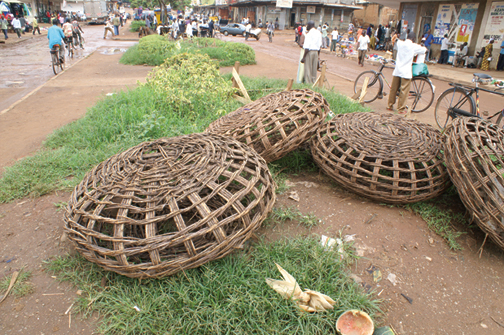
Dear Julie—
I’ve been watching with a mixture of mild horror and benign amusement the recent fascination that Africa engenders in Western design circles. It’s inevitable, I suppose, that that portion of the human world known by the UN as the LDC (Least Developed Countries) would become some sort of 21st century refuge, an escape from the controlled, over-mediated hell we’ve boxed ourselves into here in fortress Euro-Amerika. But, although one of my first precepts has long been to believe that nearly any form of attention for Africa is good, I’m beginning to feel the need for a new resolution.
Your recent Change Observer post, “Bushpunk and the Future of Africa,” is a generous attempt to bring this expanding topic to an even wider readership, and I commend you for it, but with a few caveats. First, what Africa needs more than anything is for us to stop meddling with it. The recent Tunisian revolution demonstrates Africa’s political potential now that’s it’s beginning to free itself from the post-colonial governments we substituted for colonial control. Second, while sites like Ushahidi are great ideas, and telecommunications has made inroads in Africa, the continent’s population is still primarily rural, and most people have more important things to worry about than what’s going on in Accra or Abidjan or JoBerg, like where today’s meal is coming from.
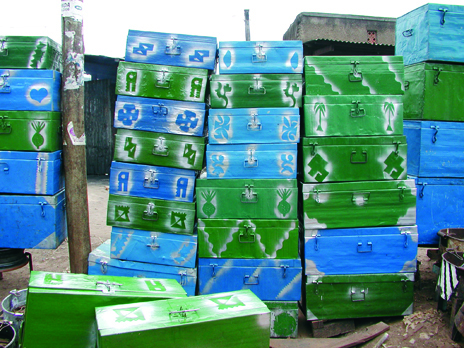
The press has afforded Nigerian American Emeka Okafor and white Kenyan Erik Hersman, respective founders of Maker Faire Africa and Afrigadget, well deserved and belated kudos for the “little known but often thought about” continent. But, as usual, in our enthusiasm we residents of the technologically hypertrophied North misunderstand much about the south. For one thing, although TED Africa and Design Indaba may work to demonstrate that design of various sorts is alive and well in Africa, a thing we knew but tend to forget, an emphasis on technology commits the same “tech will save the day” error of logic so rife in our developed societies.
Then again, the history of DIY goes back much further than the Age of Aquarius. It’s not far fetched to say that William Morris & Co. were the founders of the DIY movement, 150 years ago. There are very complex reasons why modern industrialization did not arise in Africa, except in the part that, until very recently, remained under white control. You are correct to point out that DIY is different in Africa than elsewhere, and that in Africa DIY is less a movement than a way of life. But I take issue with you where you say, “Practitioners tend to be self-trained, isolated from any network of fellow inventors…” My observations of common people in Africa suggest that craft is something almost every person learns. The markets I’ve haunted have been crowded with craftsmen and their apprentices, usually members of an extended family. Far from Okafor’s contention that people like William Kamkwamba are part of “a hidden army of people,” I see such people everywhere I look in Africa. My whole thesis about Africa is that, contrary to our popular development myths, the people there are generally self-reliant. It’s we who, through our agents and clients, have attempted to flood African markets with both our manufactures and our off-cast goods, doubly victimizing African economies.
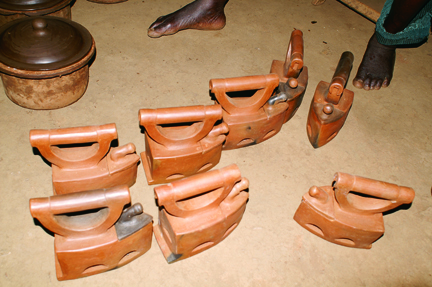
Africans are truly inventive. The Boy Who Harnessed the Wind is a heartwarming story but, and here I agree with Okafor, it is not rare or isolated. I’d like to suggest that, as we reintroduce ourselves to a more complete understanding of Africa, we accept that what we once considered to be a “basketcase continent” is really a fount, not merely of our species, but of human ingenuity. Not only did technology arise there nearly 100,000 years ago with the first knapped spear and arrowheads, but it still exists on a much more individualized basis than anywhere in our society. And to characterize African nations as wallowing in “economic quagmire” is to suggest that subsistence is worse than uncontrolled growth, an argument ecologists would certainly refute.
While we tend to defer to Time magazine as an adjudicator of what’s best (Afrigadget, one of Time’s 50 Best Websites for 2008; Valerie Casey, one of Time’s 100 Heroes of the Environment for 2010, etc.), maybe we ought to take such things with a proverbial pinch of strong African vanilla. Maker Faire is a modest start to the future of African growth, but it’s a western hegemonic fantasy to suggest that it has much to do with African self-esteem. Let’s help to eliminate malaria and AIDS, and support people’s revolts against endemic tyranny. Then we can start talking about how the latest western fashion trends might help lead to a renaissance of Africa’s undervalued economies.
David Stairs is the founding editor of Design-Altruism-Project

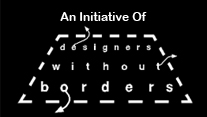




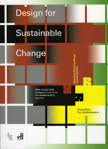
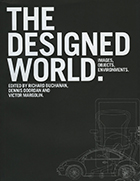



February 5, 2011 at 9:48 am
What is missing? Let’s look at the history. The Dutch, the Germans, the Spanish, the Portuguese, the Belgians, the French and the British all found things in Africa that they wanted for themselves. So began the division of the continent into parts and pieces for the gain of the imperialists. So began the forced migration of their systems from tribal to industrial. So began the Africans’ forced need for the imperialists/colonialists to stick around. You built the machine, you made us dependent on it, now we cannot live without it. The machine decided who was worth living and dying and the machine continues to prosper or perish whomever it sees fit or adulating enough to warrant its attentions.
Enter the designers… what’s our agenda? My tendency is ‘hands off unless invited’ and even then to question whether we are helping them to be more of what they are, or propagating a dependence on intervention. What business is it of ours to help them manufacture sanitary pads? Did they not find their own means of soaking up their menses before we tripped over them?
You see, when you create facts on the ground, when you force people to farm and mine and dig trenches for you, to build warehouses for you, and to trade in your currency, you erase all sense of their ability to subsist without you. Over generations, centuries, we have plotted and drawn and redrawn their maps according to the tantrums of our nations. Now that we’ve raped them of everything, and made them entirely dependent on our presence, we identify ourselves as their saviors. And they cannot see us as anything different. They are self-deprecating and deferential to our interventions. And their governments are beholden to us, as we carry their debt, carry their debt, call on favors, install leaders to perpetuate perpetuate perpetuate the machine.
We’ve made a real state of things. How to fix this? I venture to guess that it will take as many generations to divest ourselves of our imperial/colonial intrigues as it has to weave them. Remove currency from the equation. Stop sending our castoffs to clothe them. Stop mining their earth. Stop meddling in their governments. Listen long and encourage return to indigenous practices, culture, trade, enterprise. Not with money. Not with guns. Not with design. With humility and deference.
January 25, 2011 at 2:41 pm
David and Julie
Thanks for such thought provoking comments on the complexity of Africa. It’s an entire continent after all; 53 erm I mean 54 countries; hundreds of languages and all the other complicated numbers. Pretending to understand it all is mad, isn’t it? The ideas that will give us Africans a better future than the West’s present day really are everywhere around us. The means for any of them prevail against junkified Western materialism is another matter altogether. Let’s hope the good guys (wherever they may be) win enough of the battles. It’s awesome to be the generation that gets to decide – awesome and bloody frightening.
January 24, 2011 at 5:44 pm
Thanks for your thoughts Julie.
There will be Europeans and Americans interested in Africa long after it ceases to be this year’s fashion. You’re right, environmentalism is a Western concept, along with desertification, deforestation, global warming, and a slew of other ideas. Some of these will not survive our era, some may go on to save it.
I am nothing if not “anti-imperialist,” anti-capitalist, too! But I don’t have to wait for hammers to drop; we’re living in a global-size drop forge.
There are many variations of technology, from the classic world to steampunk. Obviously, if I reference arrowheads I must consider them a form of technology. I’m not universally opposed to it, either. But I am opposed to technological determinism, and worried by our culture’s devotion to it.
Finally, incubation of ideas across cultures is a wonderful human activity. Glomming onto exotic cultural artifacts in an effort to market them, as I suspect both Afrigadget and TED to be guilty of doing, stinks.
January 24, 2011 at 5:11 pm
David, you seem to believe that industrialization means a leap into environmentally damaging, growth-at-any-cost practices. I don’t agree. Consider Elizabeth Scharpf’s plan to set up a solar-powered factory in Rwanda that turns banana leaf fibers (an agricultural waste product) into affordable sanitary pads (http://bit.ly/70qX23). If she pulls it off, she’ll have found an ecologically sensitive way to employ local labor as well as keep girls in school.
From your pointed descriptions of Emeka Okafor as a Nigerian American and Erik Hersman as a white Kenyan, I’m guessing Elizabeth loses credibility points with you because she’s from the West. But would you say it’s impossible for Westerners to intervene in Africa in any productive way? Is it fair to charge them with mindlessly championing technological solutions (“tech will save the day”) while at the same time you repeatedly bring up environmentalism, which is nothing if not a Western preoccupation? And aren’t you failing to consider that there are many modes of technology? My understanding is that Okafor is working against a model of industrialization imported from the developed world by African leaders and toward one that, despite his interest in “sexy metalworks,” blends better with the decentralized craft production evidenced in both today’s rural villages and urban slums.
Maker Faire Africa is intended to be, not a Western-style showcase of cool stuff as much as a place where participants can learn from one another. You’re right: in referring to African DIY practitioners as “self-trained” and “isolated,” I erred in suggesting that skills weren’t passed down through families and apprentices. My point was the lack of access to a wide variety of learning resources. Just as India’s Honeybee Network (http://bit.ly/9GuLZ4) is meant to solve social problems across communities, Maker Faire Africa, at a more modest level, was created to incubate ideas across borders and disciplines. The effects are intended to grow organically from the bottom, not to be imposed from the top.
Okafor hopes businesses — and economies — will be seeded by homegrown innovation and collaboration. Of course, the precarious political conditions of sub-Saharan Africa threaten to destabilize all such aspirations. But to suggest that his ideas — and my admiration of them — are tainted by Western bias feels like an anti-imperialist reflex to a hammer that has yet to drop. In no way do I believe that “subsistence is worse than uncontrolled growth.” I do believe, however, that development can be modulated, and that the opposite of subsistence isn’t growth. It’s nonexistence.